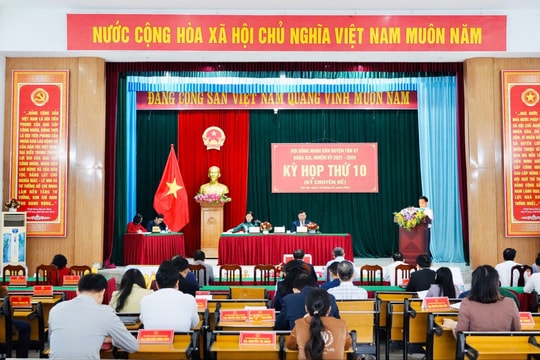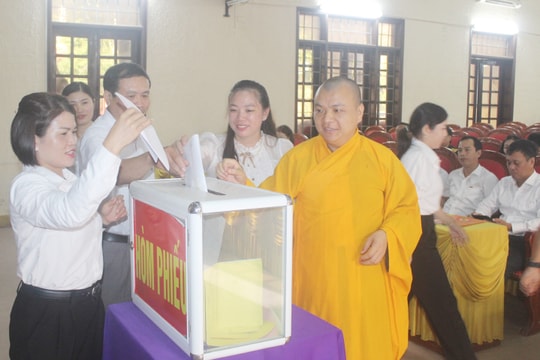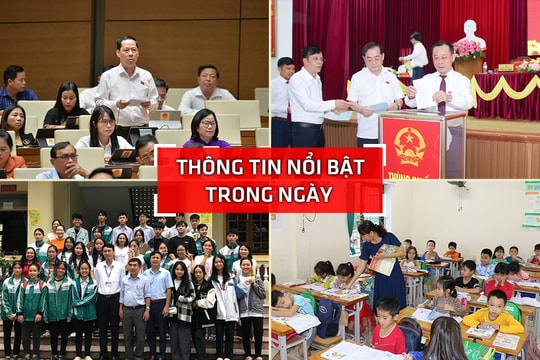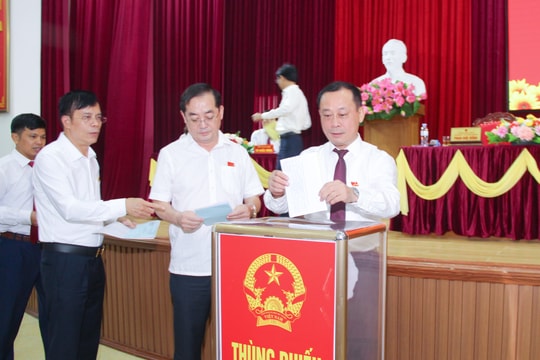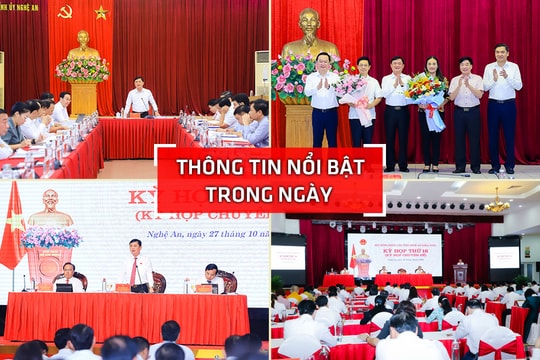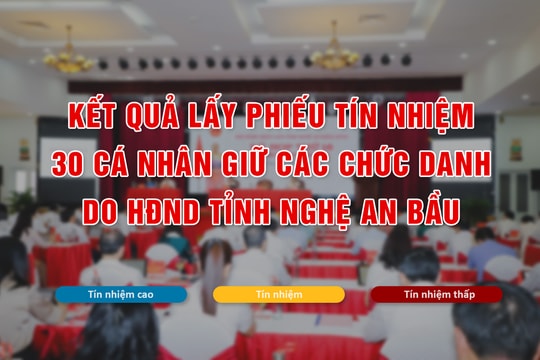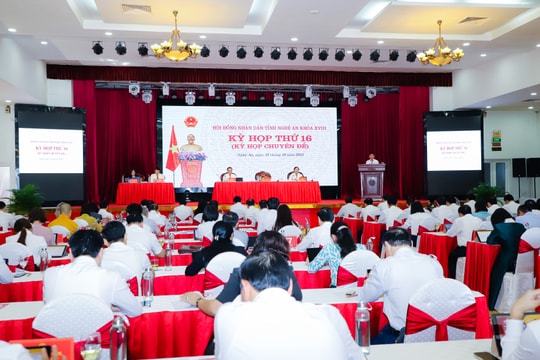What is noteworthy about the new regulations on taking a vote of confidence for leadership positions?
The regulation adds criteria on the exemplary behavior of oneself and spouse and children in complying with State policies and laws as well as the exemplary responsibility of officials to consider when taking a vote of confidence.
Standing member of the Secretariat Vo Van Thuong has just signed and issued on behalf of the Politburo Regulation No. 96-QD/TW on taking a vote of confidence for leadership and management positions and titles in the political system.
This Regulation replaces Regulation No. 262-QD/TW dated October 8, 2014 of the Politburo on taking votes of confidence for leading members of Party committees and leading officials in Party, State, Vietnam Fatherland Front agencies and socio-political organizations.
 |
Illustration photo. |
According to this Regulation, the scope, subjects of the vote of confidence and the specific composition of the vote of confidence are as follows: The scope and subjects are cadres holding leadership and management positions of organizations, agencies and units in the political system from the Central level to the level with affiliated units. Cadres who have announced their retirement or have been appointed or elected in the year of the vote shall not be subject to the vote of confidence.
The composition of the vote of confidence is specifically regulated for each title, leadership and management position in the political system. The conference to take the vote of confidence can only be held when at least 2/3 of the summoned people are present.
The regulation also states the time for taking a vote of confidence, that is: Taking a vote of confidence is conducted periodically in the third year (the middle year of the term of the Party Congress at all levels), specifically as follows: Taking a vote of confidence for positions elected or approved by the National Assembly and People's Councils at all levels is carried out according to the regulations of the National Assembly.
Taking a vote of confidence for positions elected by the Party Central Committee is carried out according to the Party Central Committee's working program. Taking a vote of confidence for positions of local Party committee leaders is carried out after taking a vote of confidence for positions elected by People's Councils at all levels.
Taking a vote of confidence for other leadership and management positions and titles is conducted after the mid-term review of the first 6 months of the third year of the mid-term of the Party Congresses at all levels.
The regulation clearly states two criteria for taking a vote of confidence: political qualities, ethics, lifestyle, sense of organization and discipline; results of performing assigned duties and tasks (calculated from the beginning of the term to the time of taking the vote).
In addition to the stance, viewpoint, political mettle in implementing the Party's policies and guidelines, the State's policies and laws; maintaining political qualities, ethics, lifestyle; sense of responsibility in work... The Regulation also considers criteria such as the results of leadership and direction in implementing the Party's policies on the fight against corruption and negativity, things that Party members are not allowed to do and the responsibility to set an example; the exemplary role of oneself and spouse, children in complying with the State's policies and laws; regularly maintaining contact with the local Party Committee. Results of leadership, advising, organizing the implementation of the Party's policies and guidelines, the State's policies and laws in the field and scope of responsibility; dynamism, innovation, creativity, decisiveness, daring to think, daring to do, daring to take responsibility in performing assigned tasks.
The regulation clearly states: The results of the vote of confidence must be reported to the competent authority in charge of cadre management and made public according to regulations. Cadres with low confidence must be promptly considered for removal from the planning, resignation, dismissal or assignment to another job lower than the current position without waiting for the end of the term or appointment period.
Strictly prohibit and severely handle violations, distorting the level of trust or taking advantage of the vote of confidence to reduce the reputation of others, causing division and internal disunity.
Taking a vote of confidence contributes to assessing the prestige and performance of assigned duties and tasks of cadres, helping cadres "self-reflect", "self-correct", continue to strive and practice in work; is an important basis for Party committees and organizations to train, foster, arrange and use cadres; improve the effectiveness of leadership, management and supervision of cadres./.

